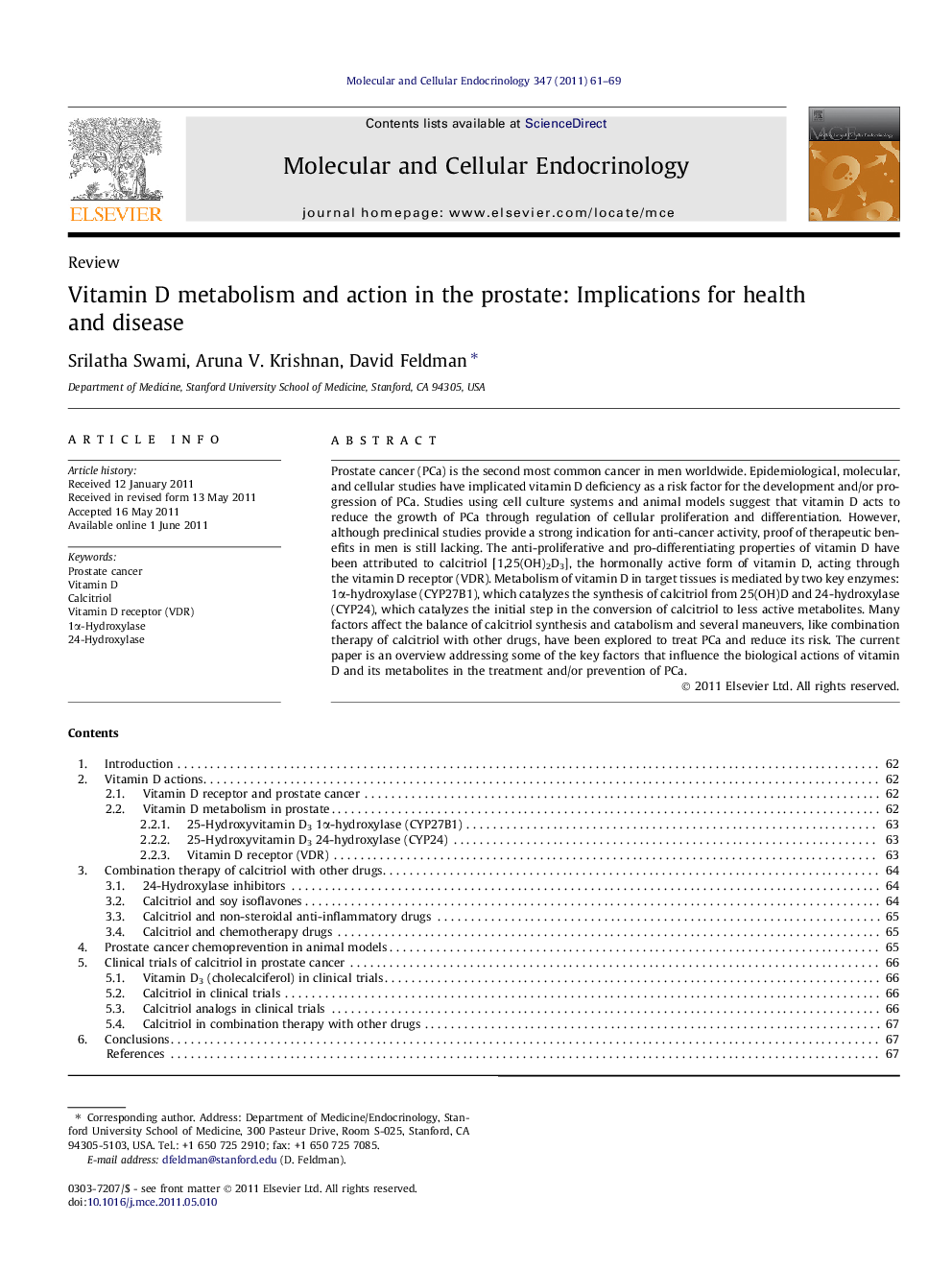| Article ID | Journal | Published Year | Pages | File Type |
|---|---|---|---|---|
| 2196461 | Molecular and Cellular Endocrinology | 2011 | 9 Pages |
Prostate cancer (PCa) is the second most common cancer in men worldwide. Epidemiological, molecular, and cellular studies have implicated vitamin D deficiency as a risk factor for the development and/or progression of PCa. Studies using cell culture systems and animal models suggest that vitamin D acts to reduce the growth of PCa through regulation of cellular proliferation and differentiation. However, although preclinical studies provide a strong indication for anti-cancer activity, proof of therapeutic benefits in men is still lacking. The anti-proliferative and pro-differentiating properties of vitamin D have been attributed to calcitriol [1,25(OH)2D3], the hormonally active form of vitamin D, acting through the vitamin D receptor (VDR). Metabolism of vitamin D in target tissues is mediated by two key enzymes: 1α-hydroxylase (CYP27B1), which catalyzes the synthesis of calcitriol from 25(OH)D and 24-hydroxylase (CYP24), which catalyzes the initial step in the conversion of calcitriol to less active metabolites. Many factors affect the balance of calcitriol synthesis and catabolism and several maneuvers, like combination therapy of calcitriol with other drugs, have been explored to treat PCa and reduce its risk. The current paper is an overview addressing some of the key factors that influence the biological actions of vitamin D and its metabolites in the treatment and/or prevention of PCa.
► Preclinical studies in demonstrate that vitamin D and its active metabolites inhibit prostate cancer growth. ► Combination of vitamin D metabolites with other active drugs show enhanced anticancer activity in animal models. ► Clinical trials have mostly involved men with advanced prostate cancer and findings thus far have been disappointing. ► Preclinical data strongly indicate benefit and further study for prevention and treatment of prostate cancer is warranted.
